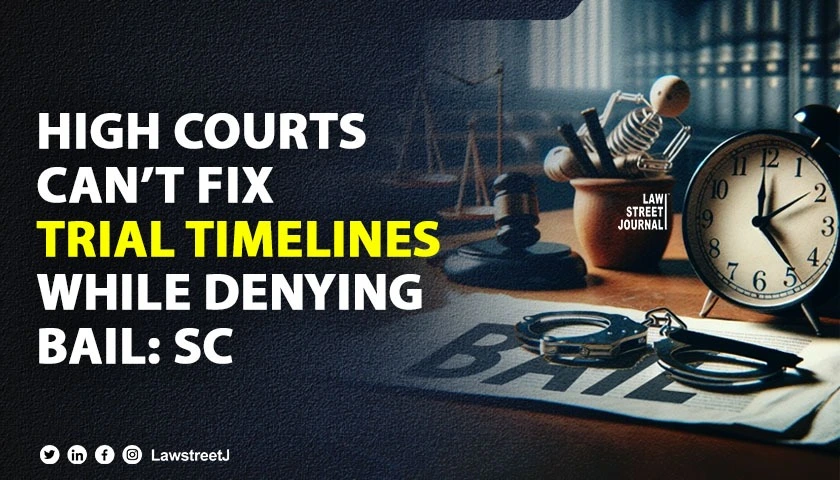NEW DELHI: The Supreme Court has expressed concern that in several orders passed by different High Courts while rejecting the bail applications, in a routine manner, they are fixing a time-bound schedule for the conclusion of the trials, which was against the Constitution bench decision.
SC Criticizes High Courts for Routine Time-Bound Trial Orders in Bail Rejections
"Such directions adversely affect the functioning of the trial courts as in many trial courts, there may be older cases of the same category pending," a bench of Justices Abhay S Oka and Augustine George Masih said.
The court said the High Courts must grant bail to an accused, if he is entitled to it on the ground of long incarceration as the option of issuing a direction for expediting trial in such cases is not the solution.
Bail Over Jail: Supreme Court Emphasizes Long Incarceration as Key Consideration
In its November 25 judgment, the bench underscored that one cannot get out of turn hearing just because he has approached the constitutional courts.
The bench noted a direction which can be issued in exceptional circumstances is being routinely issued by High Courts without noticing the law laid down by the Constitution bench.
It said every court has criminal cases pending which require expeditious disposal for several reasons, such as the requirement of the penal statutes, long incarceration, age of the accused, etc.
"Only because someone files a case in our constitutional courts, he cannot get out of turn hearing. Perhaps after rejecting the prayer for bail, the courts want to give some satisfaction to the accused by fixing a time-bound schedule for trial. Such orders are difficult to implement. Such orders give a false hope to the litigants," the bench said.
The court referred to the 2024 decision of a Constitution Bench of in the case of High Court Bar Association, Allahabad vs State of Uttar Pradesh & Ors (2024) which stated that in the ordinary course, the constitutional courts should refrain from fixing a time-bound schedule for the disposal of cases pending before any other courts.
The court's judgment came, while granting bail to Sangram Sadashiv Suryavanshi, who remained in jail for two and half years, in a case related to possession of six counterfeit currency notes of Rs 500 each.
The court found there are no antecedents of the accused, the trial is not likely to conclude in a reasonable time.
"Therefore, in the facts of the case, the appellant deserves to be enlarged on bail following the well settled rule that bail is rule and jail is an exception," the bench said.

















